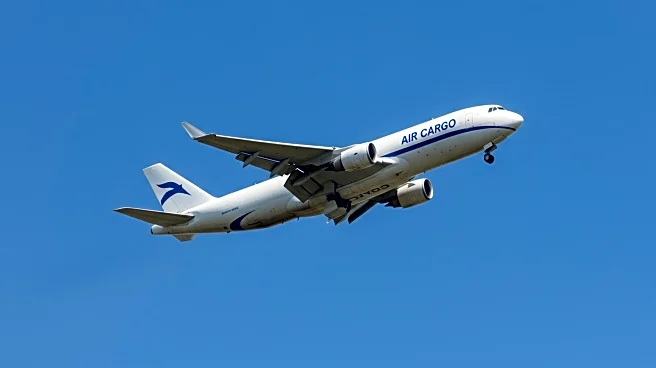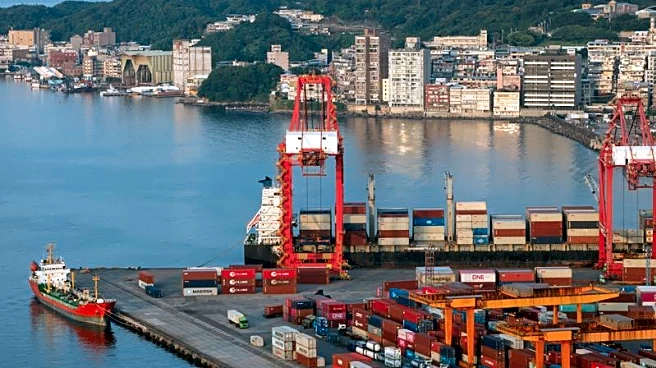What is the story about?
What's Happening?
Airlines in the Asia-Pacific region have reported the strongest growth in air cargo demand globally, according to the International Air Transport Association (IATA). In June, the region saw a 9% year-on-year increase in demand for air cargo, with capacity rising by 7.8%. This growth contrasts with declines in North American traffic and stagnant growth in Europe. The expansion is largely driven by China's burgeoning e-commerce sector, which has led to the launch of 20 new international air cargo routes in July. Boeing forecasts that China will require an additional 585 dedicated and converted freighters by 2043. The growth in Asia-Pacific air cargo is attributed to increased trade activities, particularly between Asia and the Middle East, despite ongoing trade tensions affecting other regions.
Why It's Important?
The significant growth in air cargo demand in the Asia-Pacific region highlights the shifting dynamics of global trade, with Asia becoming a central hub for logistics and e-commerce. This trend could lead to increased investments in infrastructure and technology to support the growing demand. The expansion of air cargo routes and capacity in Asia-Pacific may also influence global supply chains, making them more efficient and resilient. However, the ongoing trade tensions and higher tariffs on goods imported into the U.S. could pose challenges, potentially impacting the cost and flow of goods. The developments in Asia-Pacific could serve as a model for other regions looking to enhance their logistics capabilities.
What's Next?
As Asia-Pacific airlines continue to expand their air cargo operations, further investments in infrastructure and technology are expected. Companies like Etihad Cargo are increasing their freighter services to meet the growing demand for cross-border e-commerce and high-tech shipments. The collaboration between international carriers and local logistics companies is likely to intensify, leading to more efficient logistics channels. Additionally, governments may need to focus on simplifying trade facilitation to mitigate the economic impact of trade barriers. The ongoing developments could also influence policy decisions related to trade and logistics in other regions.
Beyond the Headlines
The growth in Asia-Pacific air cargo demand underscores the importance of digitalization in trade facilitation. As companies and governments work to make trade processes simpler and more secure, there could be a push towards adopting digital solutions. This shift may lead to long-term changes in how global trade is conducted, with a focus on efficiency and transparency. The developments also highlight the potential for Asia-Pacific to become a leading player in global logistics, influencing trade policies and practices worldwide.
















